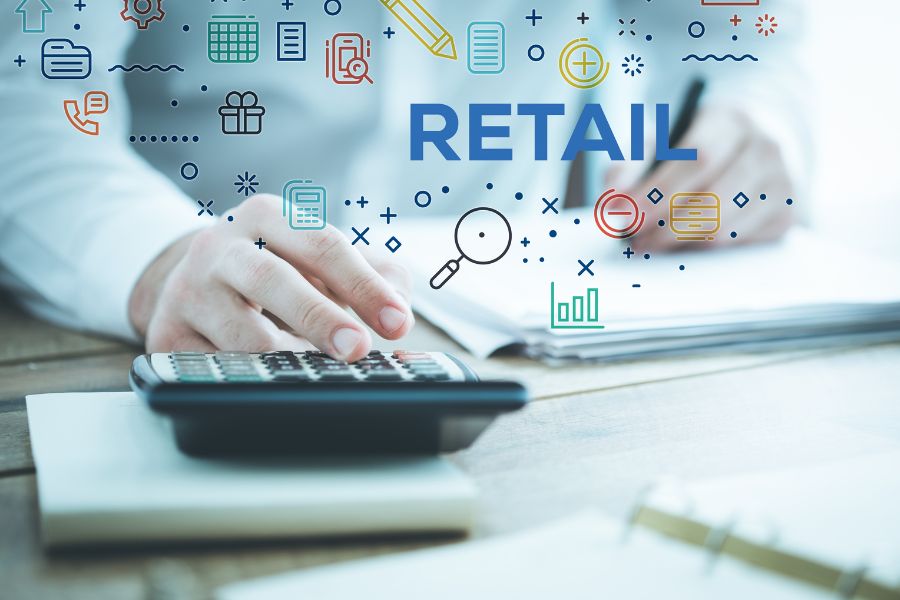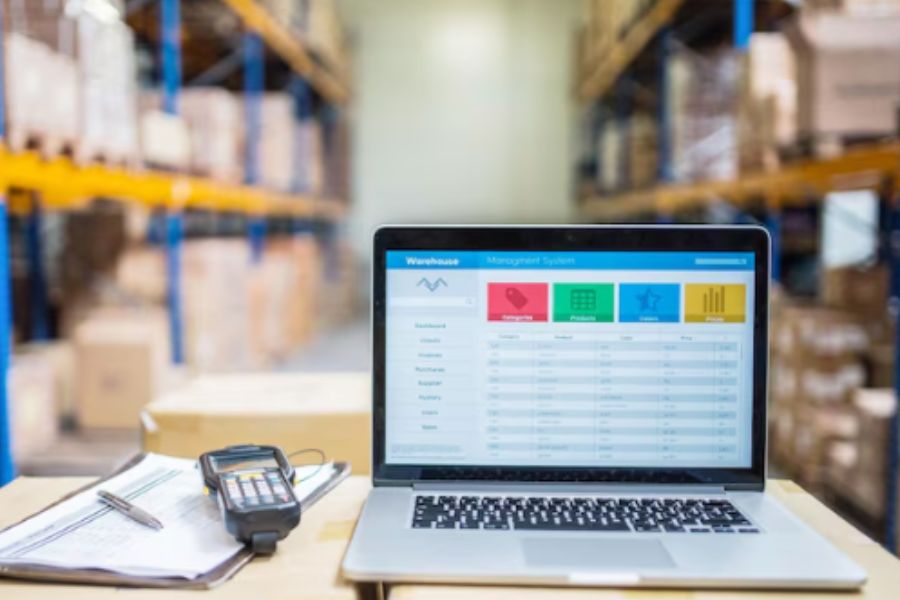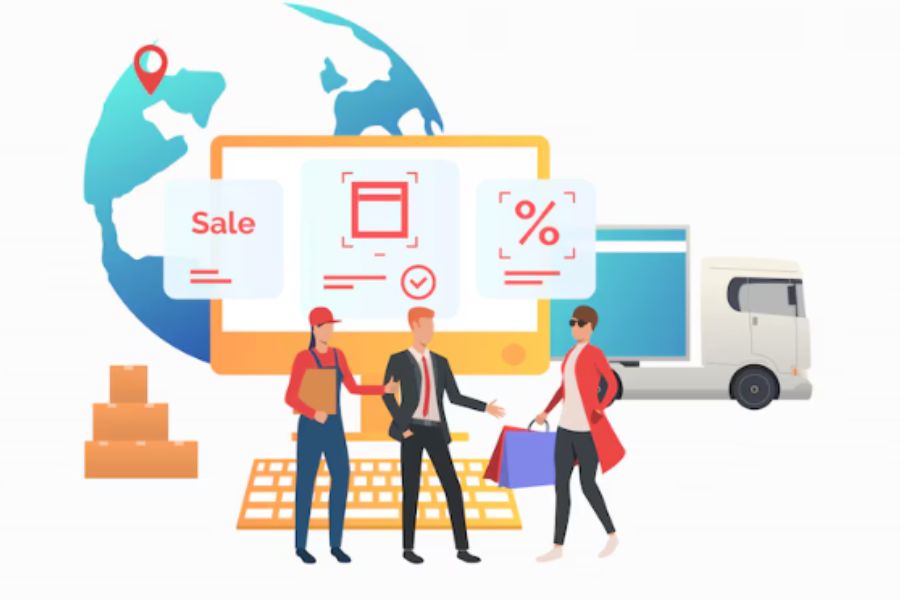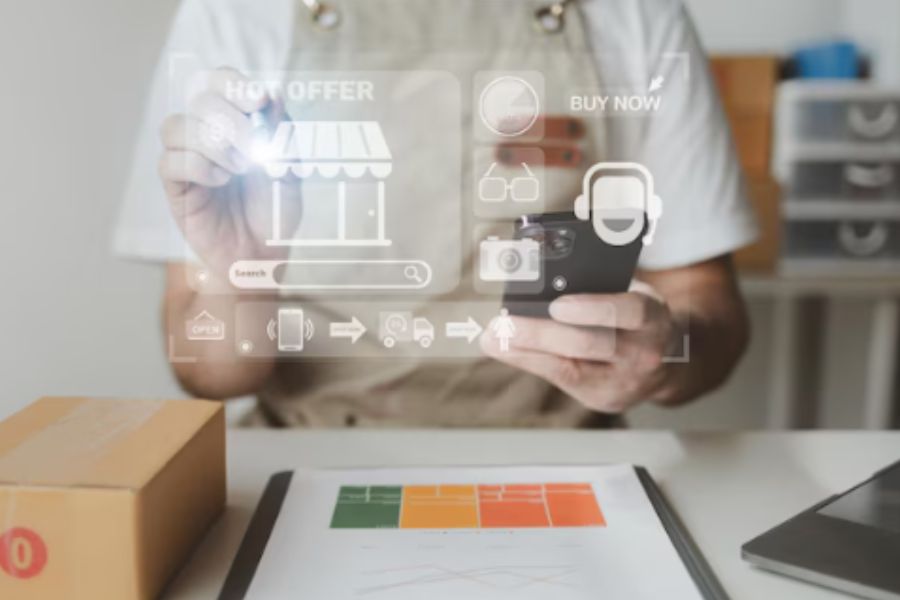Artificial Intelligence (AI) is no longer a futuristic concept. It’s reshaping the retail landscape in ways that were once unimaginable. For businesses striving to simplify operations, elevate customer experience, and boost profitability, adopting AI solutions has become a necessity rather than a choice. In this article, we’ll highlight the top 5 retail AI solutions that are setting new benchmarks in the market. These innovations propel significant changes with tools that reshape your retail approach and push your business toward greater success.
Highlights
- Retail AI solutions involve the use of artificial intelligence technologies in the retail industry to leverage big data.
- Retail AI solutions are transforming the retail industry by improving demand forecasting, supply chain efficiency, and customer personalization.
Retail AI Solutions – What Are They?
Retail AI solutions refer to the application of artificial intelligence technologies within the retail industry. These solutions harness the power of data, machine learning, and algorithms to perform tasks that traditionally require human intelligence.
Retail AI is becoming an integral part of the industry, offering new ways to handle everything from inventory management to customer engagement.
At its core, retail AI focuses on several key areas: predicting demand, optimizing supply chains, enhancing customer interactions, and detecting fraud.
This profound technological advancement results in more informed business decision-making, streamlined processes, and an improved shopping experience.
How Retail AI Solutions are Changing the Market
AI has moved beyond being just a buzzword; it’s now a transformative force in the retail industry. These are the best examples of how retail AI solutions are making an impact:
Improving Accuracy in Demand Forecasting
Accurately predicting consumer demand has always been a challenge. Traditional methods often fall short, relying on outdated historical data. AI changes this by analyzing vast amounts of real-time information from sources like social media, weather forecasts, and economic indicators. This approach enables you to fine-tune their inventory levels, reducing excess stock and shortages, and boosting profitability.
In fact, many retail chains have started using AI for demand forecasting. This way, they ensure popular items remain in stock while minimizing the surplus of slower-moving products.
Boosting Supply Chain Efficiency
Supply chain management is a complex process that involves coordinating multiple activities, from sourcing materials to delivering products. AI solutions optimize these processes by improving routes, predicting disruptions, and automating logistics.
For instance, an AI-powered system could predict potential supply chain disruptions due to adverse weather conditions and automatically reroute shipments. Thus, it reduces your operational costs and guarantees timely deliveries, leading to higher customer satisfaction.
Streamlining Routine Tasks and Workforce Management
Many of your routine tasks, such as inventory management, order processing, and employee scheduling, can be time-consuming and prone to errors. AI automates these tasks, freeing up staff to focus on more strategic activities, such as customer service and sales.
For example, AI-driven workforce management systems can automatically create employee schedules based on predicted store traffic, ensuring that the right number of staff is available at peak times. This not only improves operational efficiency but also enhances employee satisfaction by reducing scheduling conflicts.
Implementing Smart and Adaptive Pricing Strategies
Pricing is a critical aspect of retail, and getting it right can make a significant difference in sales and profitability. AI-powered pricing strategies analyze various factors, such as competitor prices, customer behavior, and market conditions, to recommend optimal pricing in real-time.
Consider a scenario where an AI system dynamically adjusts prices for your online shop based on competitor pricing and customer demand. This adaptive pricing strategy ensures that the retailer remains competitive while maximizing profits.
Personalizing Marketing and Customer Outreach
Personalization is now a necessity in today’s retail environment. AI enables you to create highly personalized marketing campaigns by analyzing customer data, such as purchase history, browsing behavior, and preferences.
A popular case is an AI-driven marketing platform that could automatically segment customers based on their shopping habits. It then sends targeted promotions tailored to each segment. This level of personalization increases the chances of conversion and fosters your customer loyalty.
Monitoring of shelf inventory and control of store layout
If you operate mostly in brick-and-mortar stores, maintaining the right inventory on shelves and an effective store layout is key to maximizing sales. AI can monitor shelf inventory in real-time, ensuring that best-selling items are always available and displayed prominently.
Imagine a store where AI-powered cameras track inventory levels and alert staff when restocking is needed. Moreover, AI can analyze customer movement to optimize your store layouts, placing high-demand items in strategic locations.
Detecting Fraudulent Activities and Preventing Losses
Retailers like you always face the constant threat of fraud, from payment fraud to return fraud. But AI can detect and prevent these activities by analyzing transaction data for unusual patterns.
For example, an AI-driven fraud detection system might flag a transaction that deviates from a customer’s typical behavior. On that notice, the retailer can investigate before processing the payment. This proactive approach effectively prevents losses and protects your business’s bottom line.
Top 5 Retail AI Solutions Leading Market Transformation
There are now hundreds of retail AI solutions, but a select few are truly leading the charge in transforming the industry. Listed below are the top 5 retail AI solutions that are setting new standards and reshaping how businesses operate.
IBM Watson Commerce
IBM Watson Commerce is a comprehensive AI-powered platform offering a wide range of tools to optimize retail operations. It uses machine learning to analyze data from various sources, providing insights that help retailers make informed decisions.
Features:
- Advanced analytics for demand forecasting and inventory management
- Personalized customer engagement through AI-driven marketing tools
- Supply chain optimization with real-time data and predictive insights
Pros & Cons:
Pros:
- Highly scalable and customizable to fit different business needs
- Robust analytics with real-time data processing
- Strong support and continuous updates from IBM
Cons:
- High implementation costs, making it more suitable for large enterprises
- Steep learning curve, requiring extensive training for staff
Pricing:
Pricing for IBM Watson Commerce varies depending on the specific modules and services required. Typically, it caters to large enterprises with costs starting in the thousands of dollars per month, depending on the scale of implementation.
Salesforce’s Einstein AI
Salesforce’s Einstein AI seamlessly integrates with Salesforce’s CRM platform, providing retailers with powerful tools for customer personalization, predictive analytics, and automated marketing. It enables businesses to deliver personalized customer experiences by leveraging data across all touchpoints.
Features:
- AI-driven customer segmentation and personalized marketing
- Predictive analytics for better decision-making
- Integration with Salesforce’s suite of CRM tools
Pros & Cons:
Pros:
- Easy integration with Salesforce products
- Intuitive and user-friendly interface
- Strong focus on enhancing customer personalization
Cons:
- Limited customization outside of the Salesforce ecosystem
- Pricing can be a barrier for smaller businesses
Pricing:
Salesforce Einstein AI pricing is based on the number of users and the required features. For small to medium businesses, prices range from $25 to $150 per user per month, while enterprise solutions can be more expensive.
Scan Unlimited
Scan Unlimited is a specialized AI tool designed for e-commerce, particularly useful for Amazon sellers. It provides competitive analysis and inventory management, helping retailers stay ahead in a crowded market.
Features:
- Competitive analysis tools tailored for e-commerce
- Real-time inventory management and demand forecasting
- Advanced product research capabilities
Pros & Cons:
Pros:
- Ideal for e-commerce and Amazon sellers
- Provides in-depth competitive analysis
- User-friendly interface with easy navigation
Cons:
- Limited features for brick-and-mortar stores
- Requires regular data updates to maintain accuracy
Pricing:
Scan Unlimited offers a tiered pricing model starting at $49 per month for basic features, with more advanced plans available for larger businesses.
Triple Whale
Triple Whale is an analytics and data platform tailored for direct-to-consumer Shopify brands. It delivers real-time insights into financial performance, marketing effectiveness, and customer behavior. As a result, eCommerce businesses easily monitor key metrics like customer acquisition costs, lifetime value, contribution margin, and return on ad spend.
Triple Whale integrates with platforms like TikTok, Snapchat, Facebook, Google, Klaviyo, and Amazon to provide a comprehensive view of how different marketing channels perform. This empowers businesses to optimize their ad spending with data-driven decisions.
Features:
- Real-time analytics for customer behavior and sales performance
- Integration with major e-commerce platforms and social channels
- Marketing effectiveness tracking and optimization
Pros & Cons:
Pros:
- Strong focus on e-commerce analytics
- Real-time data visualization with user-friendly dashboards
- Seamless integration with popular e-commerce platforms
Cons:
- Limited to e-commerce; not suitable for physical retail stores
- Higher price point for businesses requiring advanced features
Pricing:
- Free Forever: Limited to two users, including up to 12 months of historical data.
- Growth Plan: $1,200 annually or $129 monthly.
- Pro Plan: $1,990 annually or $199 monthly.
- Enterprise Plan: $2,790 annually or $279 monthly.
Crisp Data Platform
Crisp Data Platform is designed to meet the data needs of Consumer Packaged Goods (CPG) companies, serving as a centralized hub for data management, analytics, and collaboration. It excels at ingesting, harmonizing, and integrating data from over 40 retailers and distributors, offering CPG companies a single, reliable source of truth.
Features
- AI-driven demand forecasting and inventory management
- Real-time supply chain monitoring and optimization
- Waste reduction tools for perishable goods
Pros & Cons:
Pros:
- Excellent for optimizing complex supply chains
- Reduces waste and improves inventory management
- Real-time insights with predictive capabilities
Cons:
- Limited application outside of supply chain and inventory management
- May be overkill for smaller retailers
Pricing:
Crisp offers custom pricing based on the size of the business and the complexity of its supply chain needs. Typically, pricing is available upon request, with scalable options tailored to different business sizes.
For retailers who don’t need the full complexity of the platforms mentioned earlier, ConnectPOS is a great alternative.
It comes with useful features like real-time inventory tracking, multi-store support, and sales reporting, all in a system that’s straightforward and budget-friendly. ConnectPOS can be customized to meet the specific needs of different retail businesses, making it a solid choice for those looking to improve their operations without dealing with unnecessary complications.
While AI features are not currently available in ConnectPOS, they are in development and will be integrated soon. This makes ConnectPOS a smart choice for retailers who want a reliable system now, with the potential for advanced features in the future.
FAQs: Retail AI Solutions
- Which AI solution is best for small retail businesses?
For small retail businesses, the best AI solution will depend on specific needs. However, tools like Salesforce’s Einstein AI or Triple Whale are often favored due to their scalability and ease of use. These platforms provide powerful AI capabilities without requiring extensive technical expertise, making them ideal for small to medium-sized businesses.
- How much does it cost to implement AI solutions in retail?
The cost of implementing AI solutions varies widely depending on the platform, the size of the business, and the specific features required. It can range from $50 per month for basic tools to several thousand dollars per month for enterprise-level solutions.
- Are there any risks associated with using AI in retail?
While AI offers numerous benefits, there are also risks to consider. These include potential data privacy concerns, the cost of implementation, and the need for ongoing maintenance and updates.
Over-reliance on AI without human oversight can also lead to errors or unintended consequences. Retailers should ensure they have proper safeguards and a clear strategy for integrating AI into their operations.
Conclusion
Retail AI solutions have moved from being an optional upgrade to becoming essential tools that reshape the industry. These innovations enhance how retailers predict demand, manage supply chains, tailor customer interactions, and adjust pricing. AI is driving significant changes in retail operations, helping businesses of all sizes stay ahead in a competitive market. While AI offers clear benefits, it’s also a significant investment. For businesses not yet ready to take that step, solutions like ConnectPOS provide a practical alternative, offering essential features with the flexibility to grow alongside your business.
If you’re interested in getting more information about ConnectPOS or prefer a demo of how it operates, reach out to us!



